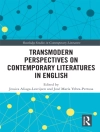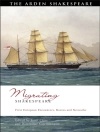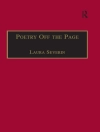This first book-length study of D. H. Lawrence’s lifelong engagement with music surveys his extensive musical interests and how these permeate his writing, while also situating Lawrence within a growing body of work on music and modernism. A twin focus considers the music that shaped Lawrence’s novels and poetry, as well as contemporary developments in music that parallel his quest for new forms of expression. Comparisons are made with the music of Debussy, Schoenberg, Stravinsky, Wagner, and British composers, including Bax, Holst and Vaughan Williams, and with the musical writings of Forster, Hardy, Hueffer (Ford), Nietzsche and Pound. Above all, by exploring Lawrence and music in historical context, this study aims to open up new areas for study and a place for Lawrence within the field of music and modernism.
Table des matières
1. Introduction: “Words writ to the music’.- 2. “The insidious mastery of song”: Cadence and decadence in the early poems.- 3. Lawrence’s case of Wagner: The White Peacock and The Trespasser.- 4. “Between heaven and earth”: Space, music and religion in The Rainbow.- 5. “Beyond the sound of words”: Harmony and polyphony in Women in Love.- 6. Music, noise and the First World War: “All of Us”, Bay and Aaron’s Rod.- 7. New world musicals: The Plumed Serpent and David.- 8. Conclusion: Aspiring to the condition of song.- 9. Afterword: Anthony Burgess’s D. H. Lawrence Suite.
A propos de l’auteur
Susan Reid is the editor of the Journal of D. H. Lawrence Studies, co-editor of the Edinburgh Companion to D. H. Lawrence and the Arts (under contract, 2020) and Katherine Mansfield and Literary Modernism (2011), and author of numerous articles and book chapters on Lawrence and other modernist writers.












